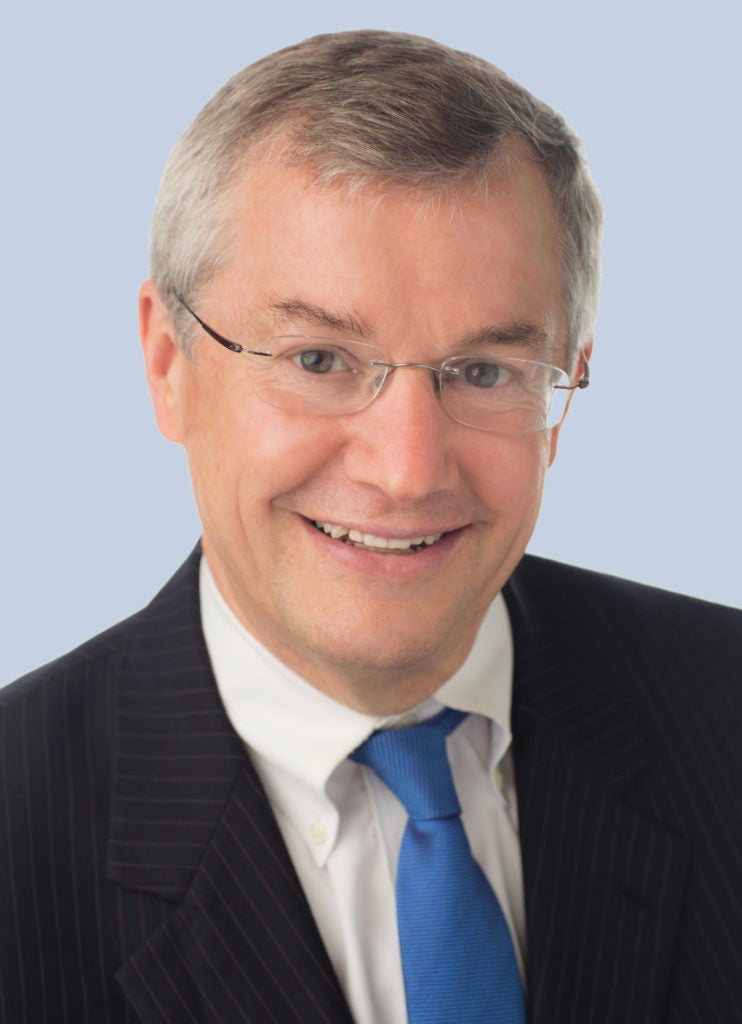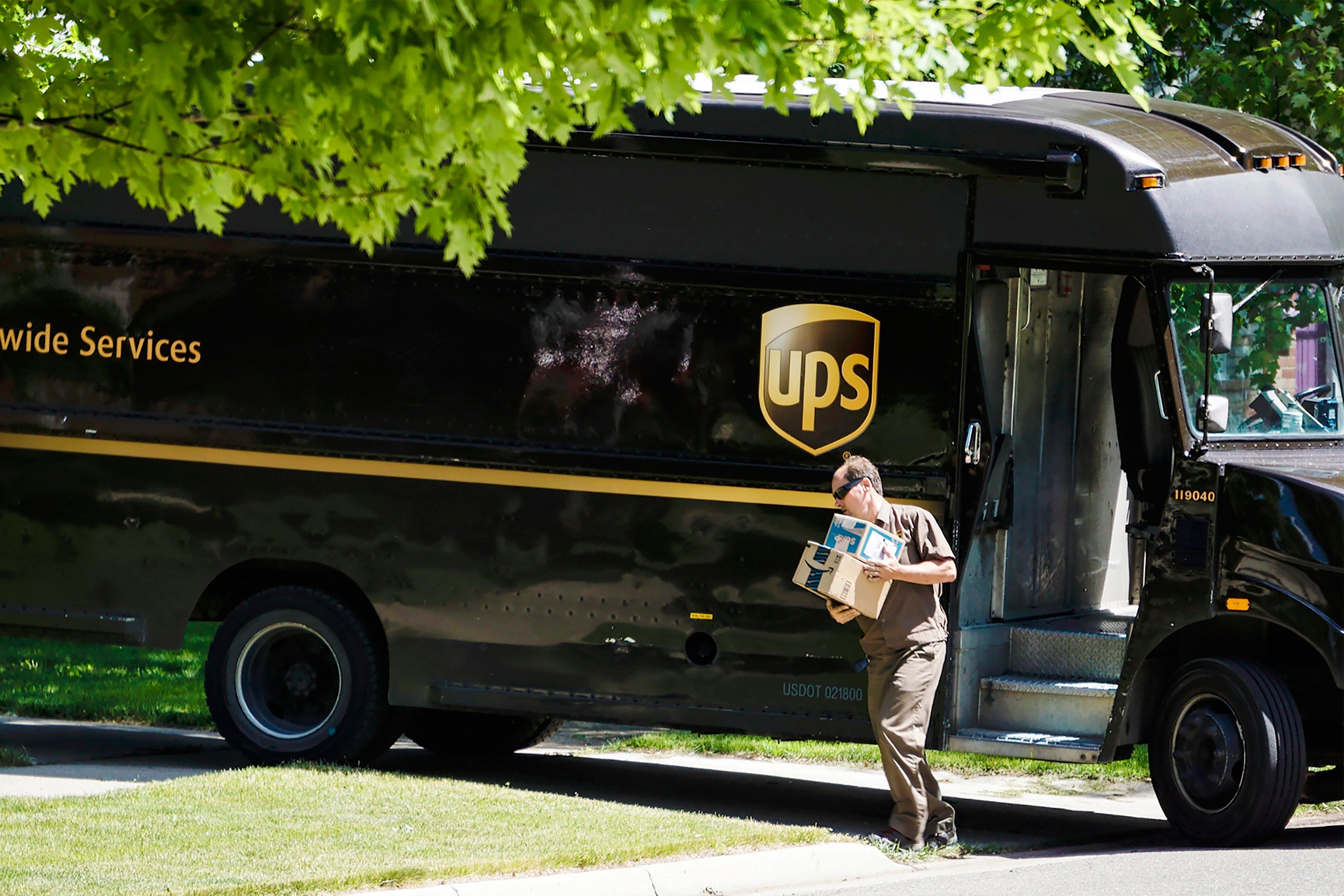Even before the pandemic, more than a third of Americans didn’t have an extra $400 to use for an emergency expense like a car repair, according to an annual report by the Federal Reserve. This type of financial insecurity fosters chronic stress among workers that costs industry $250 billion a year in reduced productivity, according to a 2017 study by Mercer.
Last year, Harvard Law School Professor Howell Jackson J.D./M.B.A. ’82 and students in his FinTech class worked with a national nonprofit, Commonwealth, on a case study related to United Parcel Service’s efforts to create an emergency savings plan for 90,000 of its nonunion workers. The plan, through which employees may divert part of their paycheck to a savings feature linked to their retirement plans, launched in October. The savings plan, believed to be the first such effort by an employer of that size, generated a story in The Wall Street Journal.

“One of the biggest problems for lower income workers is financial fragility, and the pandemic has only exacerbated that problem,” said Jackson, an expert on financial regulation, consumer protection, and federal budget policy, who serves on Commonwealth’s board. Even a small amount in savings can make a big difference for financial wellbeing: People with money set aside for emergencies have been half as likely to tap into their retirement accounts during COVID-19, according to research Commonwealth conducted with the Defined Contribution Investment Industry Association.
With financial support from Blackrock’s Emergency Savings Initiative, Commonwealth, which is focused on increasing financial stability for financially vulnerable people, reached out to UPS a couple of years ago to talk about creating an employee savings plan. It was clear “UPS cares about their employees” and was looking for ways to help them reduce financial stress, said Brian Gilmore, a director at Commonwealth. But there were many potential legal and regulatory challenges in creating an employer-based emergency savings plan.
While a major law firm was retained to provide guidance, Howell Jackson also saw an opportunity for his students. Jackson teaches the FinTech course, which focuses on new technologies applied to the provision of financial services through real-world case studies, a pedagogical approach adopted from the Harvard Business School. “The goal with the course was to develop case studies that have real-life legal problems that young attorneys might run into working for government or private practice or on the Hill, and to have to dig into some actual problems of fintech butting up against legal structures and regulatory issues,” says Jackson.
The interesting thing about this case study is there are dozens of legal problems to address in order to figure out how emergency savings can be done in a practical and economically feasible way
HLS Professor Howell Jackson
He saw the employee savings plan as an excellent case study and an opportunity for students to tackle a real-world problem. Adam Spiegel ’21, Jackson’s research assistant, drafted the case study on emergency savings plans, doing legal and regulatory research and devising three possible savings-plan options, including the approach that UPS adopted.
The case study was then explored by a team of students in Jackson’s spring 2020 fintech class. As they played the role of pro bono counsel for Commonwealth during the planning stage of the emergency savings initiative, they were tasked with laying out all the legal and regulatory issues—many of them novel and hard to answer—that would have to be surmounted. Timothy Flacke, executive director of Commonwealth, helped in the case development, and Commonwealth staff were guests in the class to discuss the issue from their perspective.
“The emergency savings case was interesting from a fintech perspective because we looked at three different options for how companies can offer emergency savings accounts,” said Carla Luna ’21. “We looked at it from different angles: legal considerations, accessibility, how much effort employees would have to put in, and what kind of technical expertise they would need.”
“One thing I love about fintech is that you’re dealing with emerging financial regulatory issues that can also have meaningful, positive social impact,” said Phoebe Lockhart ’21. “The class ended just when COVID was beginning. With so many people vulnerable to economic shocks and emergencies, it was really valuable to try to address that issue and provide a savings cushion for people.”
Among other things, the exercise with the HLS students supported Commonwealth’s analysis that it would need to pursue a regulatory safe harbor from the Consumer Financial Protection Bureau to go forward. “The process of writing the case study and then participating in the class was helpful to our thinking,” said Flacke, and Commonwealth was successful in obtaining the safe harbor.
“The interesting thing about this case study is there are dozens of legal problems to address in order to figure out how emergency savings can be done in a practical and economically feasible way,” said Jackson. Some are easily solved while others require regulatory accommodation or other governmental interventions. “I’m proud that the students identified which areas needed to get no-action relief from CFPB. What’s amazing is that Commonwealth actually got the relief.”
The Commonwealth project is one of fourteen case studies included in Jackson’s new fintech e-book, FinTech Law: The Case Studies. As Commonwealth moved ahead with UPS, Jackson and his students worked on finalizing the textbook. Each of the fourteen case studies focuses on an actual development in technology or information processing that has posed novel legal challenges for practicing attorneys or financial regulators in recent years. Published last July and available free online, it is accompanied by a teacher’s manual. Jackson is receiving email inquiries about it from law professors in Germany, Mexico, Japan, Singapore, and elsewhere.
“There is so much going on in fintech space we wanted a course and book that covered the full range of fintech developments,” said Jackson, who co-authored it with Margaret E. Tahyar, a partner at Davis Polk who has co-taught the FinTech course for the past two years. Jackson was eager to include a case study focused on financially vulnerable populations.
A few months later, in October 2020, UPS launched its emergency savings program. Jackson called it “a really amazing accomplishment in a very short period of time,” especially given that it happened during the pandemic. Commonwealth is now working with other employers to develop emergency savings plans albeit with an “auto-save” model rather than through a retirement plan as was done with the UPS initiative. Auto-save offers a voluntary automatic savings plan for employees of a small percentage of their pay that comes directly out of their paycheck.
The efforts of the HLS students have proven helpful to Commonwealth as it seeks to persuade more corporations to offer their employees emergency savings plans. Said Flacke, “The ability to think through these issues with Howell and his class means we are infinitely better equipped to have intelligent conversations about them.”
